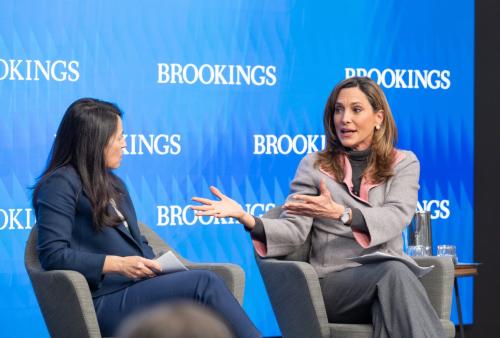Last week’s inter-party feud over publicly funded family planning was pure political showmanship and had nothing to do with curbing abortions, cutting spending, or helping women and children. Here’s why.
First, family planning subsidies reduce the incidence of abortion. The Republican rider that became a bone of contention last week (and was stripped from the final budget agreement) would have ended federal support for Planned Parenthood, which provides women with contraception, pregnancy tests, screenings for cancer and sexually transmitted infections, and—yes—abortion services. However, the so-called Hyde Amendment prohibits federal funding for abortion under nearly all circumstances, and the approximately $320 million in federal support that Planned Parenthood receives each year pays for its other activities—most importantly, its contraceptive services.
Detractors argue that, as a result of the federal funding that the organization receives for those other activities, it is able to reallocate some of its resources to the provision of abortions. While some reallocation undoubtedly occurs, it is almost certainly overwhelmed by the reduction in abortions brought about by federal financing for the contraceptive services that Planned Parenthood provides. Subsidizing contraception is an effective way of reducing unintended pregnancies, which are responsible for virtually all abortions (40% of unintended pregnancies are terminated, whereas the same is true of only 3% of intended pregnancies). In several recent studies, we estimated that a $235 million expansion in publicly subsidized family-planning services would reduce the number of abortions each year by more than 40,000. In short, family-planning subsidies are an important tool for policymakers who are genuinely committed to reducing the number of abortions.
Second, subsidies for family planning more than pay for themselves. The pregnancies that are prevented by publicly financed contraception tend to involve low-income women who, if they were to become pregnant, would be disproportionately likely to claim government benefits (Medicaid, welfare cash assistance, food stamps, and so forth) for themselves and their families. Preventing these pregnancies—even if they are simply delayed until the women in question have improved their financial situations—saves taxpayers money. In the studies described above, we found that an expansion in subsidies for family planning services would likely save taxpayers more than five dollars for every one dollar that the government spends. Given the strong cost-saving properties of these subsidies, they ought to be particularly appealing to fiscal conservatives who are concerned about our yawning national debt and the burden that it will place on current and future generations of taxpayers.
Third, subsidized family planning is good for children and their families. Women who experience unintended pregnancies are less likely to graduate from college, have lower levels of labor-force participation, and are more likely to be unmarried than women who experience intended pregnancies. Similarly, children who were conceived unintentionally have lower levels of educational attainment and higher rates of infant mortality, and they are more likely to engage in criminal and delinquent behavior as they get older. By reducing the prevalence of unintended pregnancy, family-planning subsidies help to ensure that a larger share of children are raised in stable and healthy household environments by mothers and fathers who are ready to assume the responsibilities of parenthood.
In sum, subsidized family planning is a public-policy trifecta: it reduces the prevalence of abortion, it saves tax dollars, and it improves the lives of children and families. If this policy comes under fire once again, we hope that cool heads will continue to prevail. It would be a disservice to children, their families, and American taxpayers if family planning subsidies were relegated to the status of a political football that is one day kicked to the curb.
The Brookings Institution is committed to quality, independence, and impact.
We are supported by a diverse array of funders. In line with our values and policies, each Brookings publication represents the sole views of its author(s).




Commentary
Family Planning Subsidies: Much Ado about Something
April 12, 2011